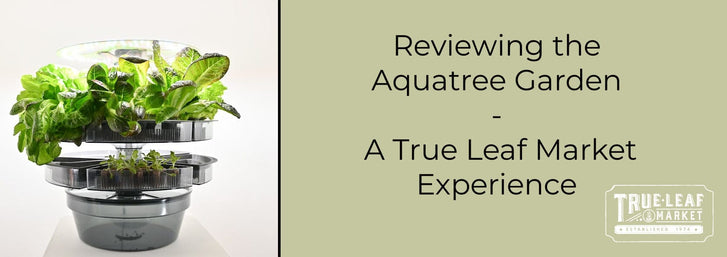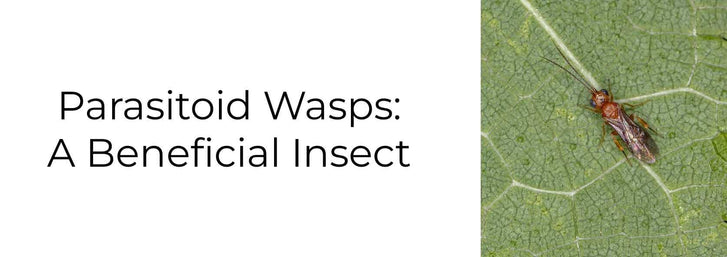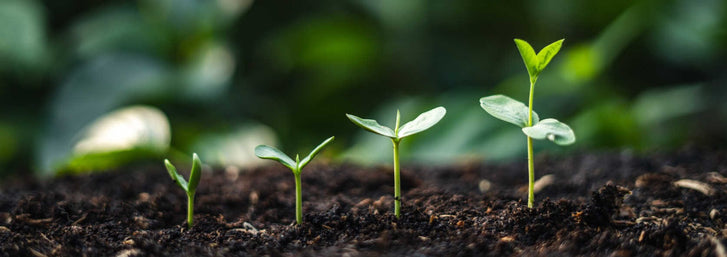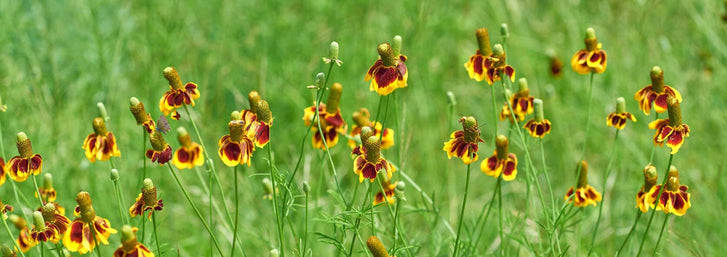
Ashleigh Smith

Why Are Chickens Good For Gardens?
Chickens have been a natural source of organic fertilizer since their existence began. Chickens provide nitrogen-rich manure to naturally enrich your garden soil. In addition to providing fertilizer, free range chickens also lightly till the top inch of the soil. This light tillage, chicken scratch really, allows your seeds to better germinate and root out.
During this process chickens are also able to quickly get pest populations under control by consuming insects in their adult forms, as well as eggs, larvae, and pupae stages. Machine till practices often damage the natural soil structure that is ideal for plant growth and perpetuate pest issues. Ideally, chickens are used to prepare planting areas as well as create a continued source of compost material throughout the year.
Why Are Cover Crops Good For Chickens?
Cover crops provide chickens with a natural, organic, and nutritious source of feed. They eat the top growth of the cover crop they take in the high density nutrients found in young plants and turn it into nitrogen-rich fertilizer. As they do this they lightly till the top of your soils preparing your planting area for seed sowing. Because their tillage is very superficial the root systems of the cover crops are allowed to break down, further contributing to a nutrient-rich soil with a healthy soil structure.
After your cover crop has reached 3-5 inches tall, introduce your chickens to the growing area. At this stage the plants are at their optimal stage for chicken digestion. As the plants grow beyond 5 inches, their carbon composition become less digestible. It is important that your chickens aren't introduced to the growing area until the crop has been established. Introducing the chickens too early will result in a poor crop.
Best Cover Crops For Natural Chicken Feed:
- Alfalfa
- Clover
- Annual Rye
- Kale
- Cowpeas
- Rabe
- New Zealand Clover
- Turnips
- Mustard
- Buckwheat
- Grain Grasses
Ideally cover crops and chickens are used as pieces in a larger picture. The soil is key in creating a healthy, productive garden. Together cover crops and chickens work to produce the nutrients needed for your main-season garden crops, preserve soil structure, reduce soil erosion over time, control pests, and increase the organic mattercontent and water retention properties of your soil.
Fast Facts About Chickens In the Veggetable Garden:
1 Chicken produces 8 lbs of manure a month = enough to compost 1 cyd of leaves
Balanced manure and compost mix: 1 lb chicken manure for every 45 lbs of leaves
Chickens till 50 square feet of sod in 4-6 weeks
1 Chicken = nitrogen fertilizer for 50 square feet of garden in a month
Chickens can eat ¼ to ⅓ lbs of food waste in a day = flock of 6 consuming 60 lbs of food waste in a month
Chickens can de-bug 120 square feet a week
About the Author

I'm Ashleigh Smith, a native to Northern Utah. I first gained a love of gardening with my grandmother as I helped her each summer. I decided to make a career of it and have recently graduated with a Bachelor's degree in Horticulture from Brigham Young University - Idaho. My studies have focused on plant production while I also have experience in Nursery & Garden Center Operations.
Become a True Leaf Market Brand Ambassador! You’ll enjoy awesome perks, free products and exclusive swag & offers! Help us create a gardening revolution and help others experience the joy of growing!
Leave a comment
Your email address will not be published. Required fields are marked *
9 comments
Katie
Love this! It’ll be a challenge keeping my flock away from the crop cover while it grows though! Nevertheless I’m really excited to throw some down this fall!
Natalie
It’s definitely a goal of ours to get a small piece of land and include chickens with our agricultural system! Blog post had great info!
Renee
New to this. More of a question, so we would plant this “cover crop” let the chickens eat it and fertilize the area, then grow our good harvestable crop like tomatoes?
Elizabeth
This was a timely post for me, I have just been researching the topics of using chickens and gardens in symbiosis. Thank you!
Jess
Such a great article! We are in the process of redoing our chicken yard, and this blog gave us some great tips!
Kari
Chickens are such an integral part of regenerative agriculture! I love the concept of feeding your birds through cover cropping while simultaneously nourishing the soil. Great article!
Jessy Hazelip
I have 6 chickens and I knew a lot of what you wrote in the article. I do love the list of cover crops I can grow for them. I had no idea they could de big an area like this. This was a great article.
Connie Gore
Thanks for the info, I hope to have chickens next year!
Julie Schmit
Great info for when I get chickens next spring. Definitely saving this blog post.
Further Reading

Reviewing the Aquatree Garden: A True Leaf Market Experience
The AquaTree Garden is an innovative growing experience! This nifty appliance allows you to grow leafy greens, microgreens, herbs, large sprouts, and vegetable starts (like tomatoes) all at once! When it comes to indoor gardening, there is no question ...

Ashleigh Smith
2024-04-225 min read1
Parasitoid Wasps: A Beneficial Insect in the Garden
Written By Lara Wadsworth There are estimated to be around one million different species of parasitic wasps worldwide. In fact, most wasps are parasitic, which means they live on or in a host at the host's expense. For common garden pests like aphids, ...

Ashleigh Smith
2024-04-226 min read0
Succession Planting: The Key to a Continual Harvest
Do you find yourself harvesting large amounts of any given vegetable from your garden all at once? There is a solution! The practice of succession planting, or planting in segments over a period of time, allows you to harvest root vegetables, leafy gre...

Ashleigh Smith
2024-04-223 min read2
10 Natives of the Southwest USA for Pest Control
Written By Lara Wadsworth The Southwestern United States is a region incredibly unique to the rest of the country. The hot, dry weather can be challenging for plants and animals to thrive without additional help. That is why gardening with natives can ...

Ashleigh Smith
2024-04-157 min read0



